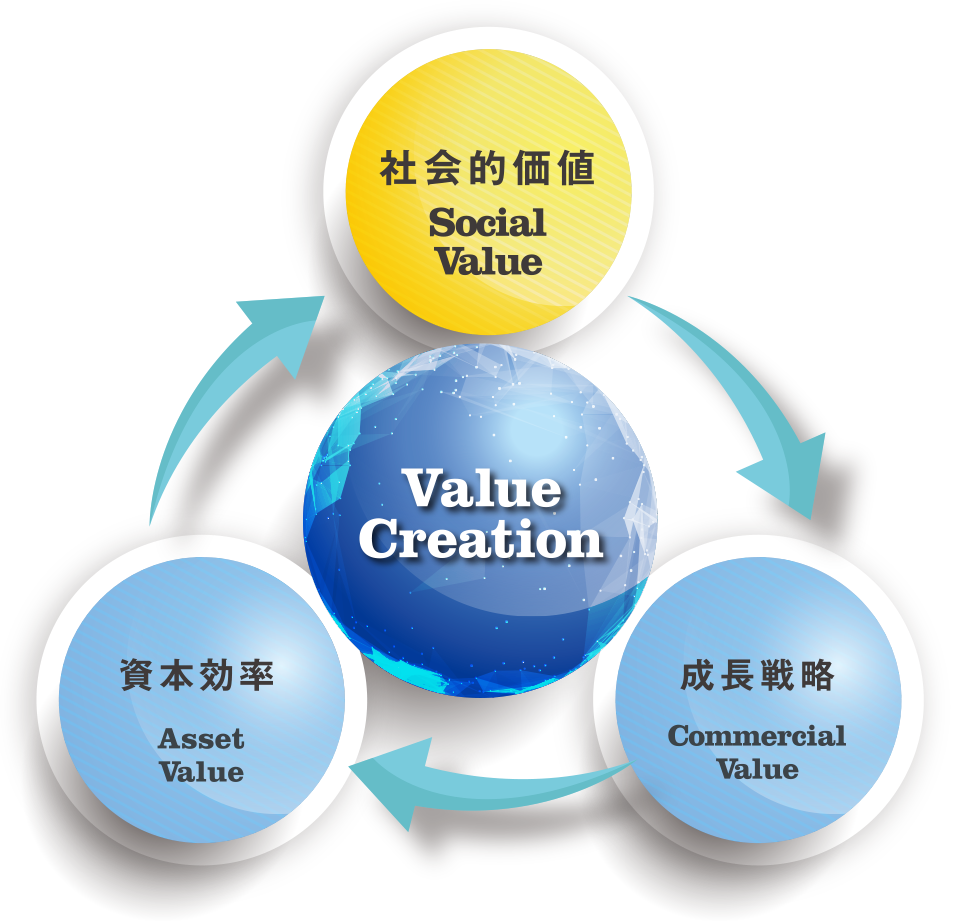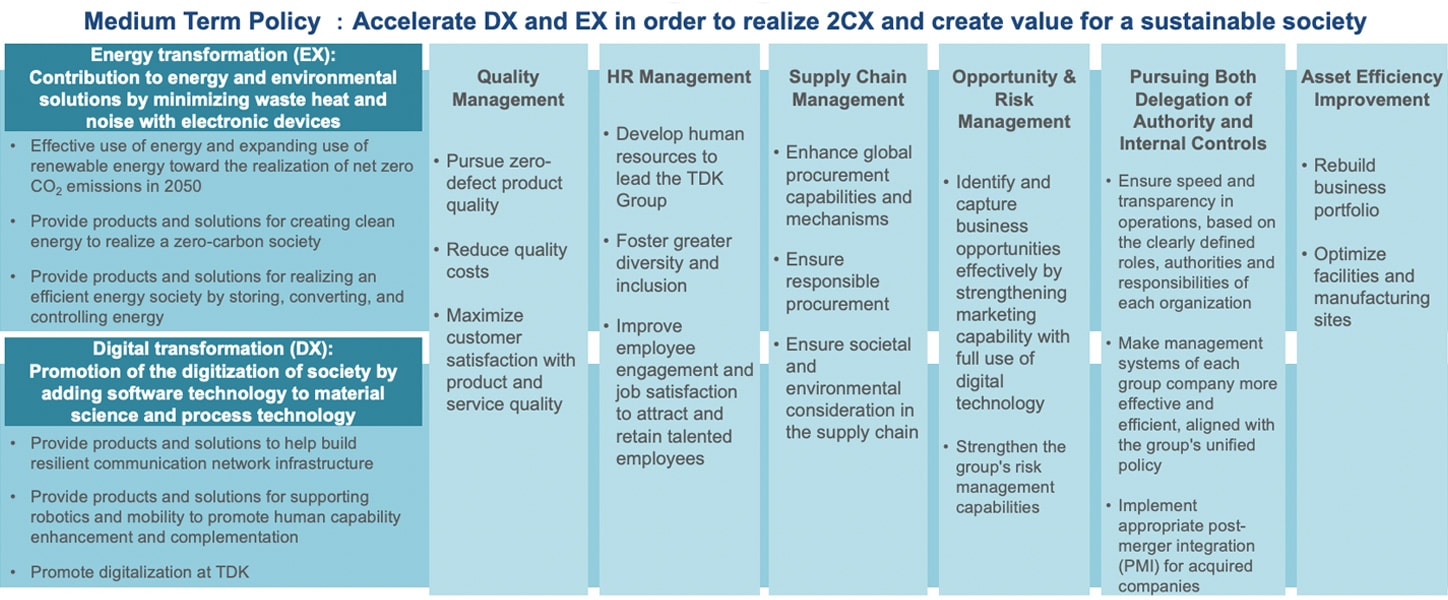Sustainability | Sustainability Management | TDK Group's Materiality Identifying Materiality
TDK Group’s Materiality
Since fiscal 2015, the TDK Group has worked to address four key CSR issues (materiality): Contribute to the World through Technology; Develop Human Resources; Consider the Societal and Environmental Impact of the Supply Chain; and Develop and Prosper in Harmony with the Global Environment.
In fiscal 2020, we reviewed our materiality in conjunction with preparing our new Medium-Term Plan. In order to both achieve the targets of the Medium-Term Plan and balance society’s sustainability with sustainable corporate growth, we identified materiality by defining key issues as those which should be addressed by giving them top priority in investment of the organization’s management resources.
Under Value Creation 2023, our Medium-Term Plan, we continue our approach of contributing to society while creating Commercial Value (achieving our growth strategy), Asset Value (improving asset efficiency), and Social Value (improving our value to society), aiming for business growth as a result. Social Value—the goal of a sustainable society and company—is the starting point of a cycle for creating the other types of Value.
EX and DX, set forth in our materiality, are the business areas that TDK focuses on for social value creation and company growth, areas in which we can create value for society through the Group’s technology and products. We are striving to maximize Social Value primarily in these two areas by developing a system within the Company to generate products based on the issues raised in the SDGs.
Quality management, HR management, supply chain management, opportunity and risk management, pursuing both delegation of authority and internal controls, and asset efficiency improvement are the areas TDK has positioned as the basis for value creation in the fields of EX and DX.
These areas intersect on our materiality diagram, indicating that there is a correlation between the two.
Materiality Promotion Structure
A PDCA cycle is implemented by responsible function to be in charge of each materiality theme. Those functions then establish goals to be achieved over the next three years; action items for achieving those goals and the KPIs.





